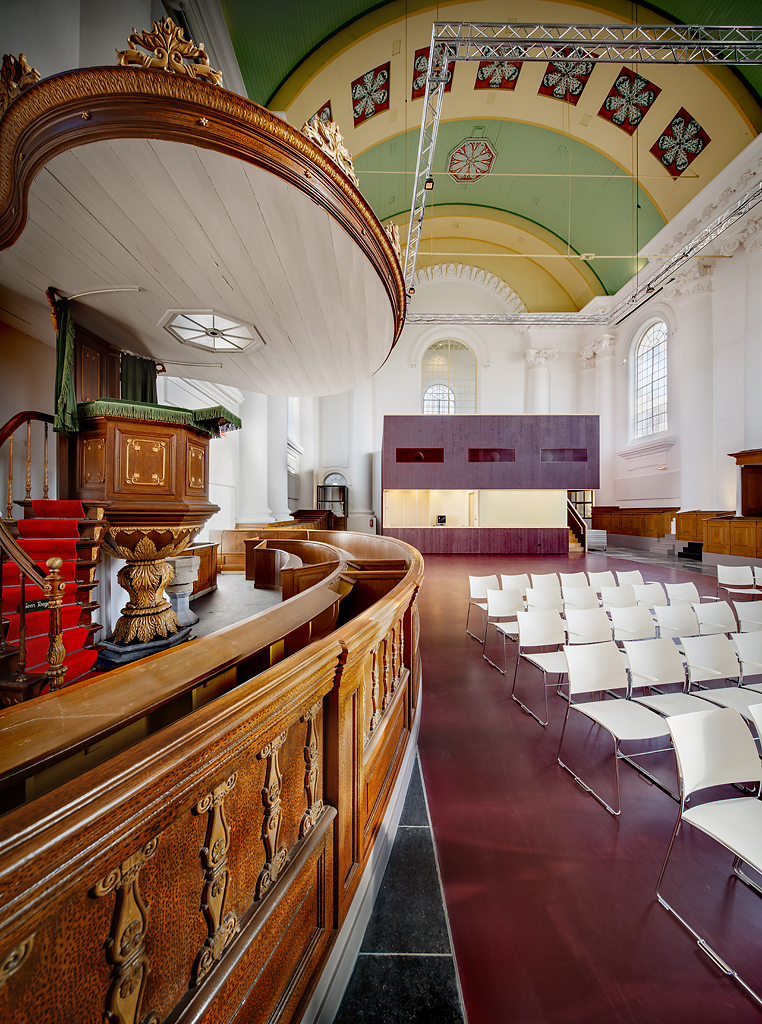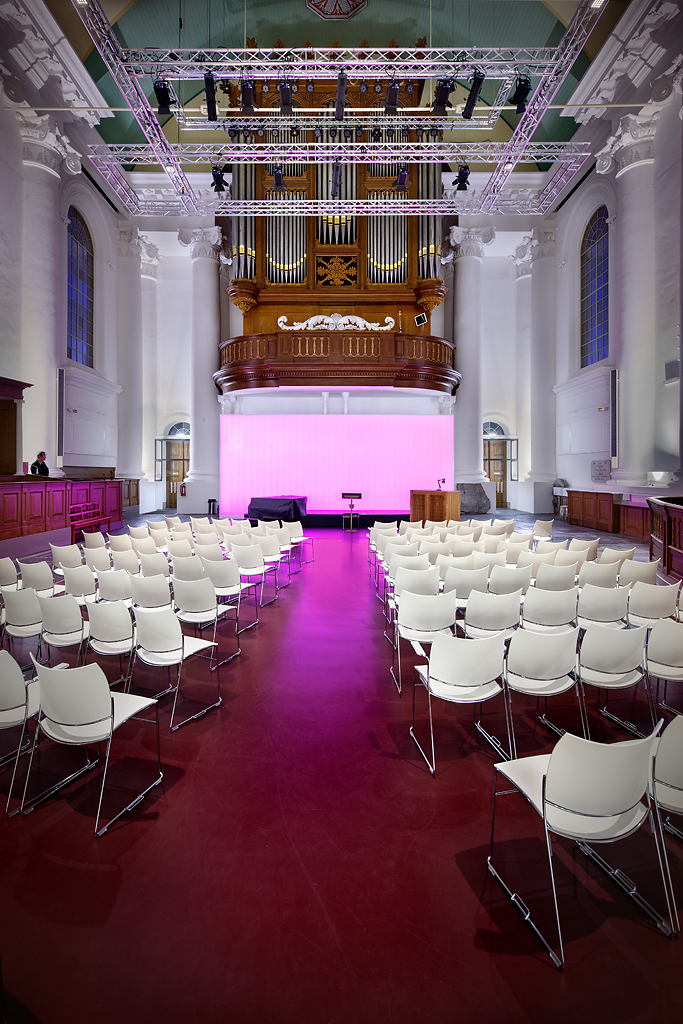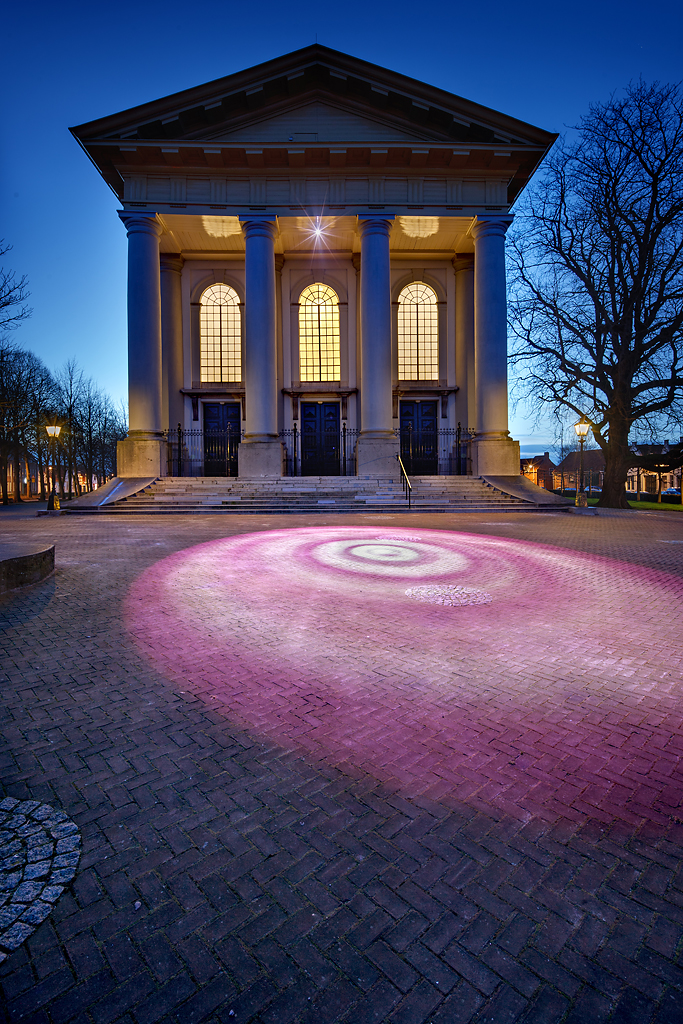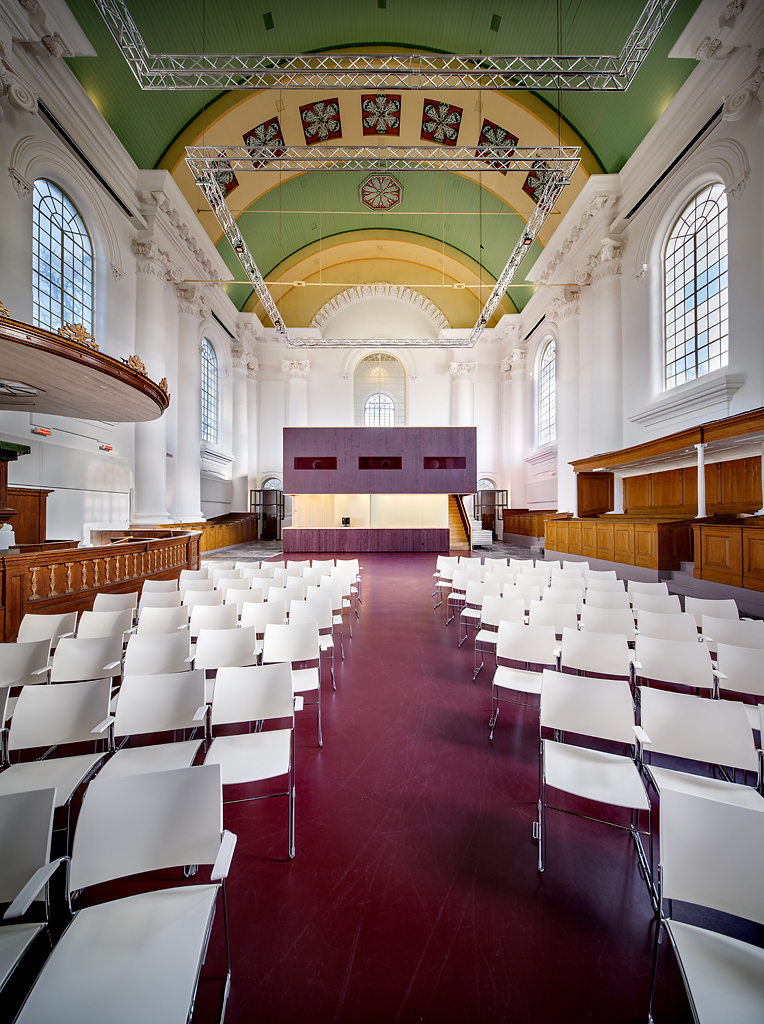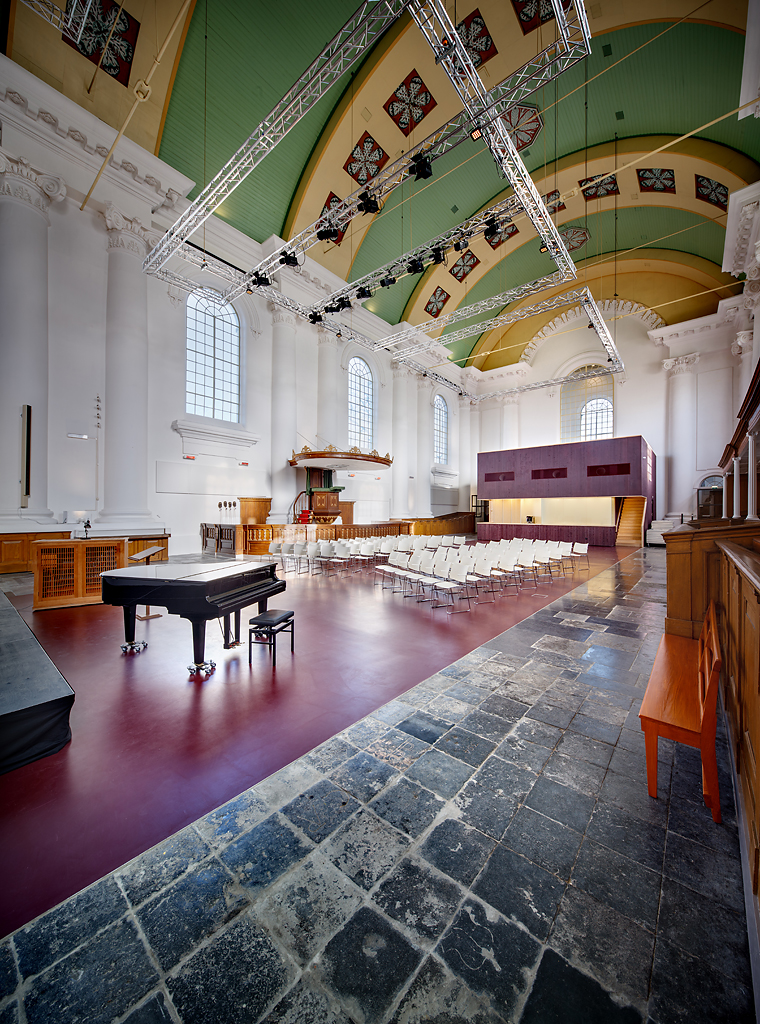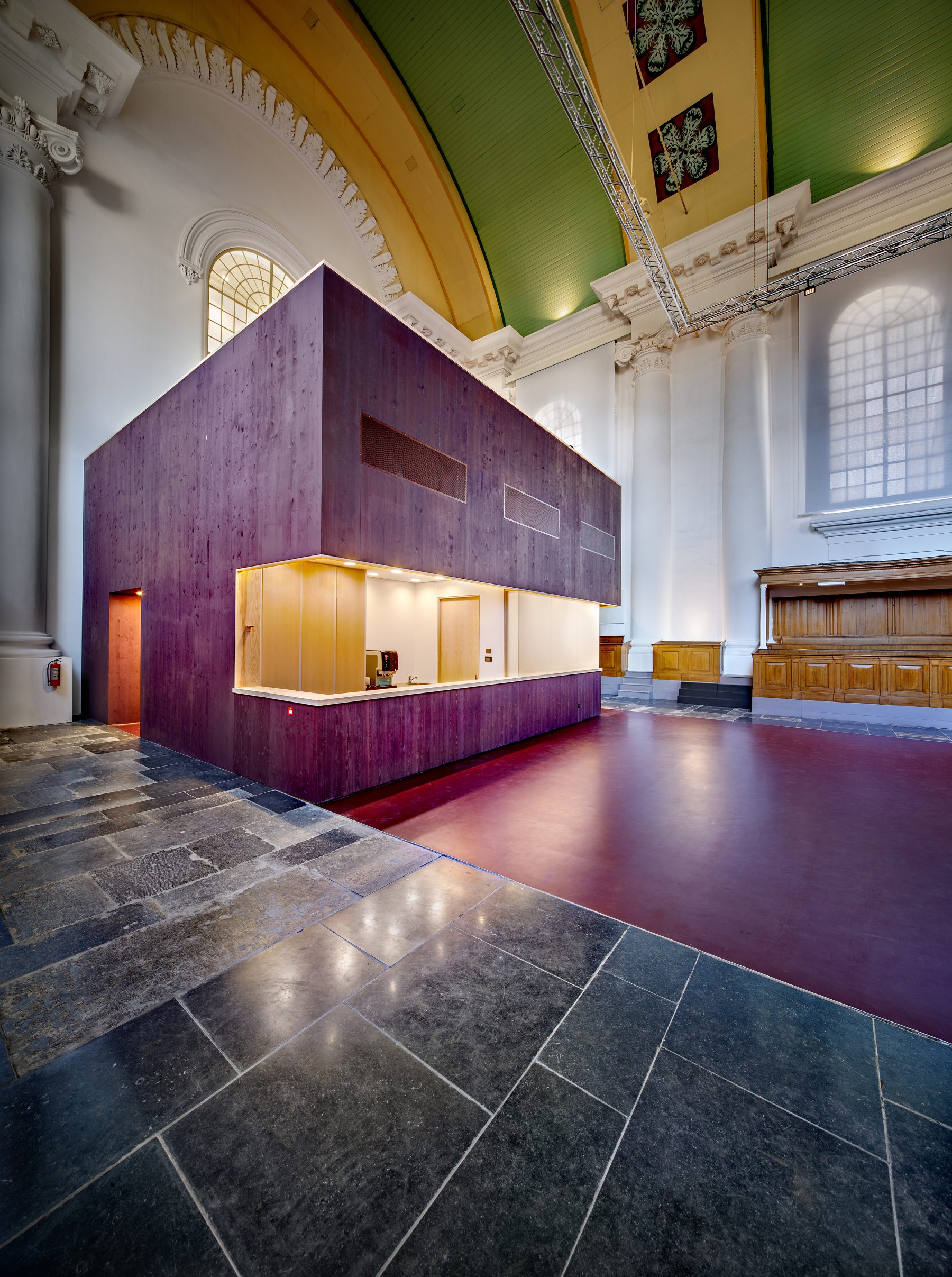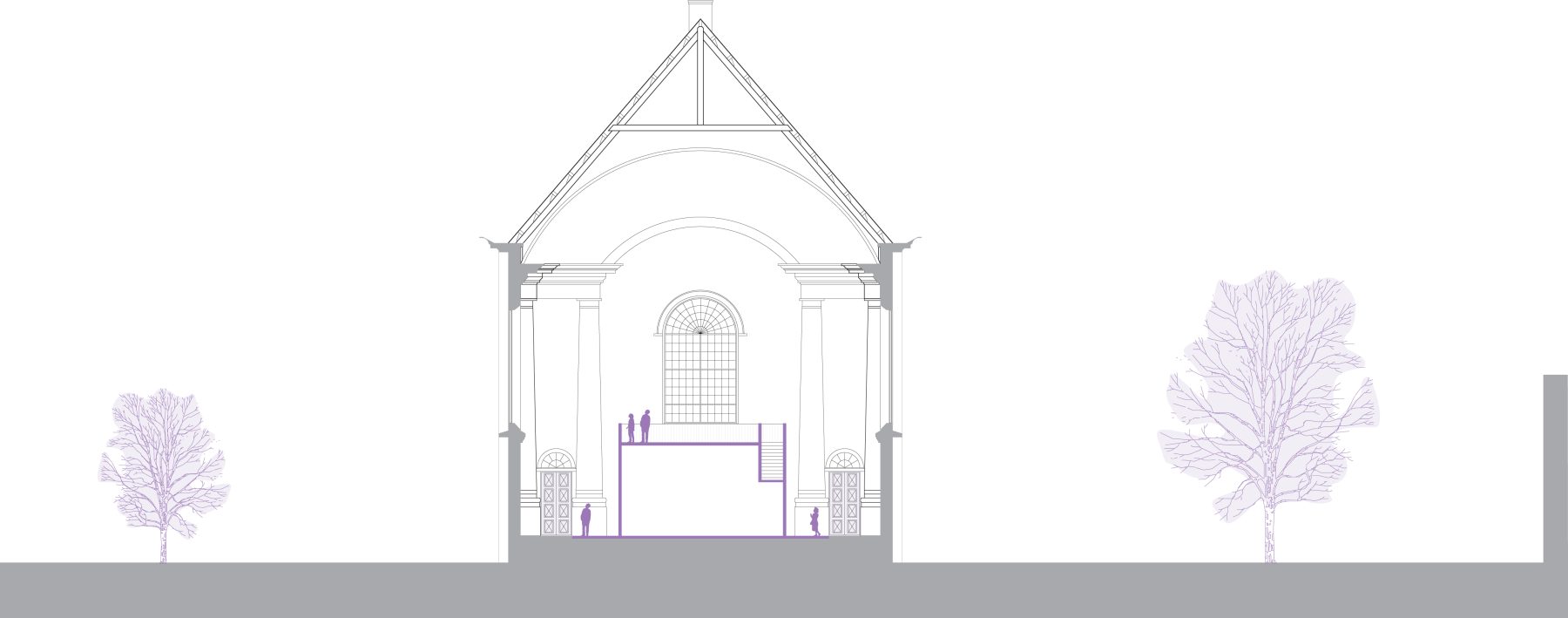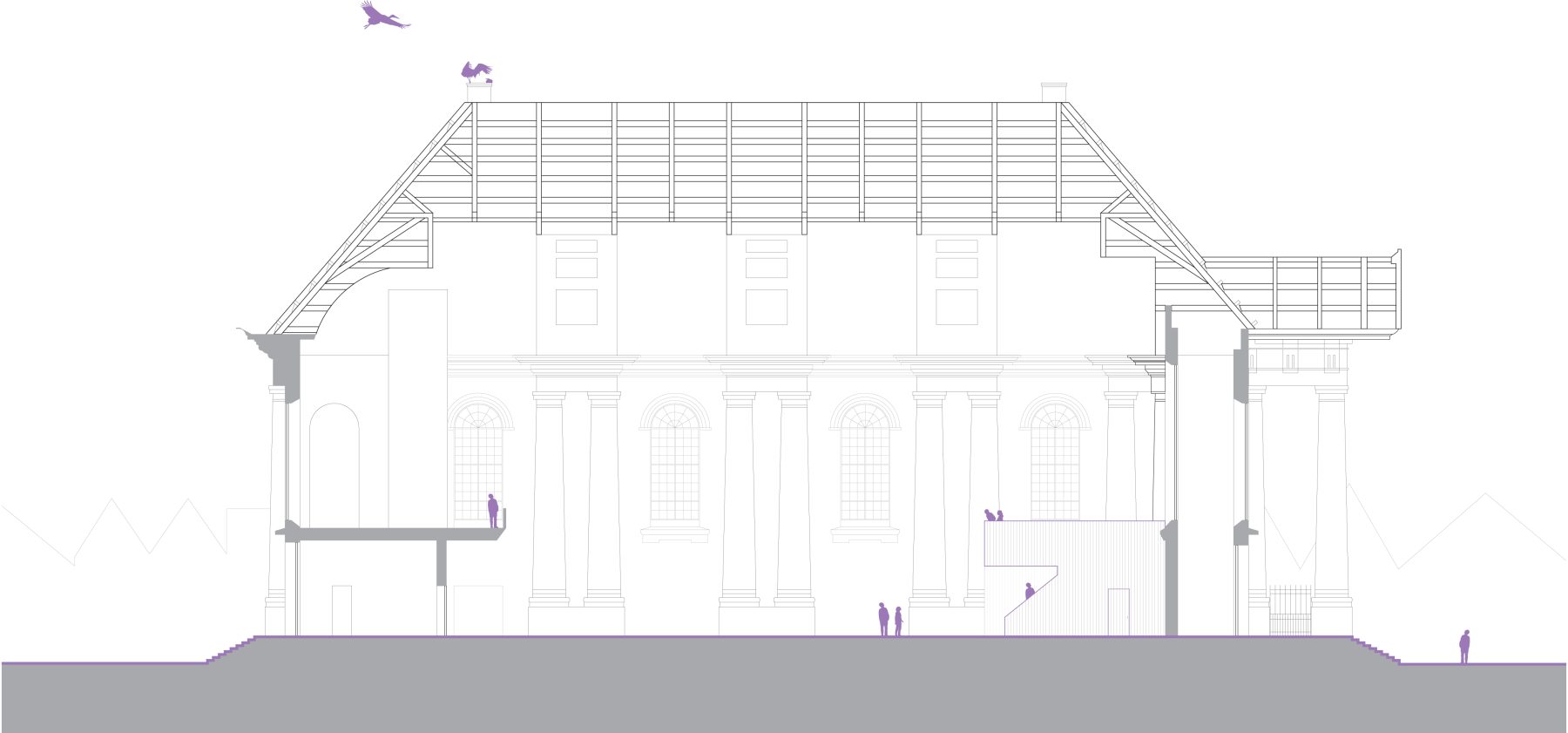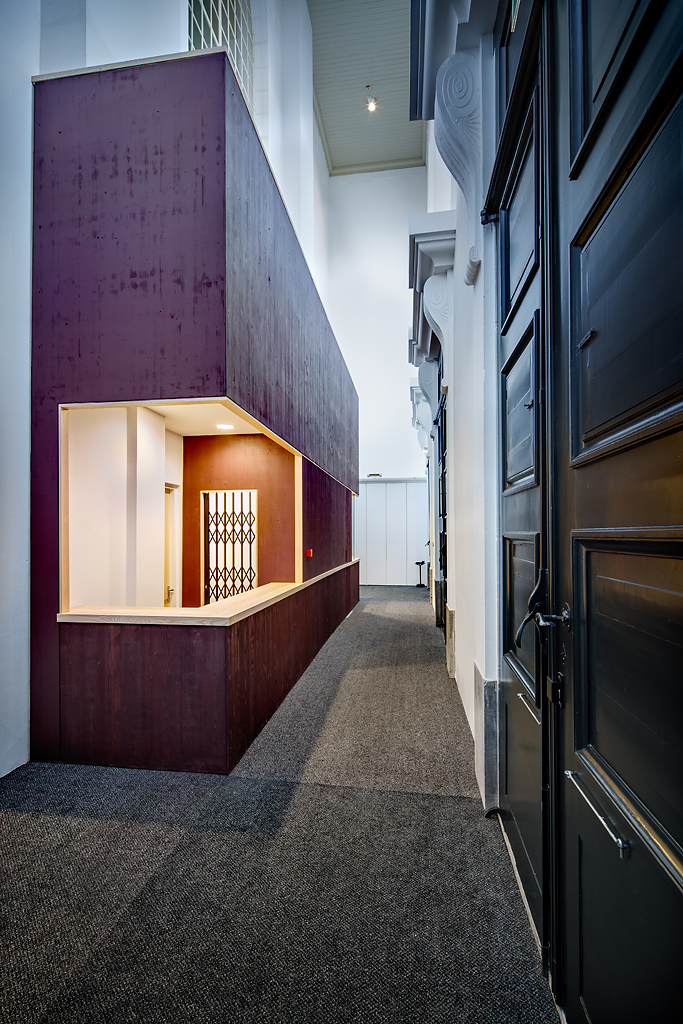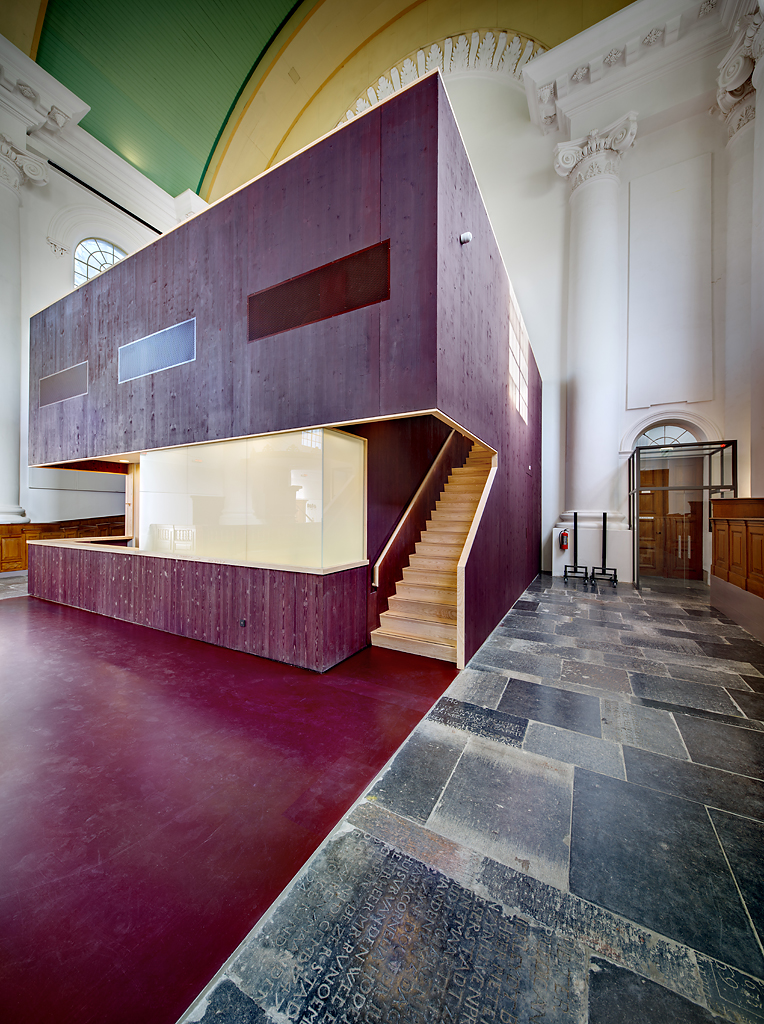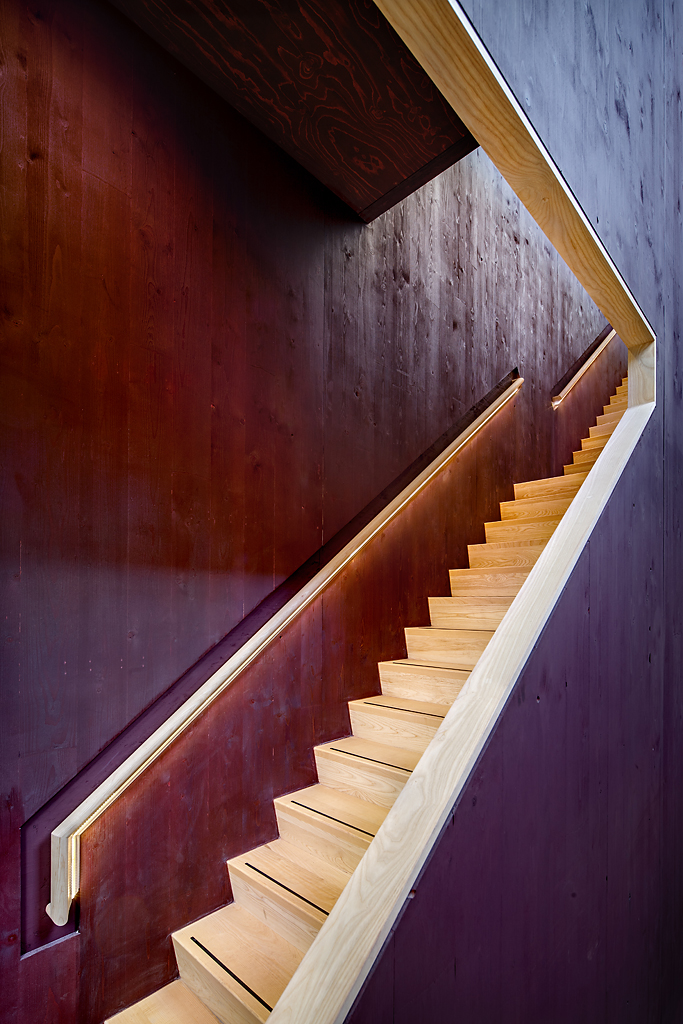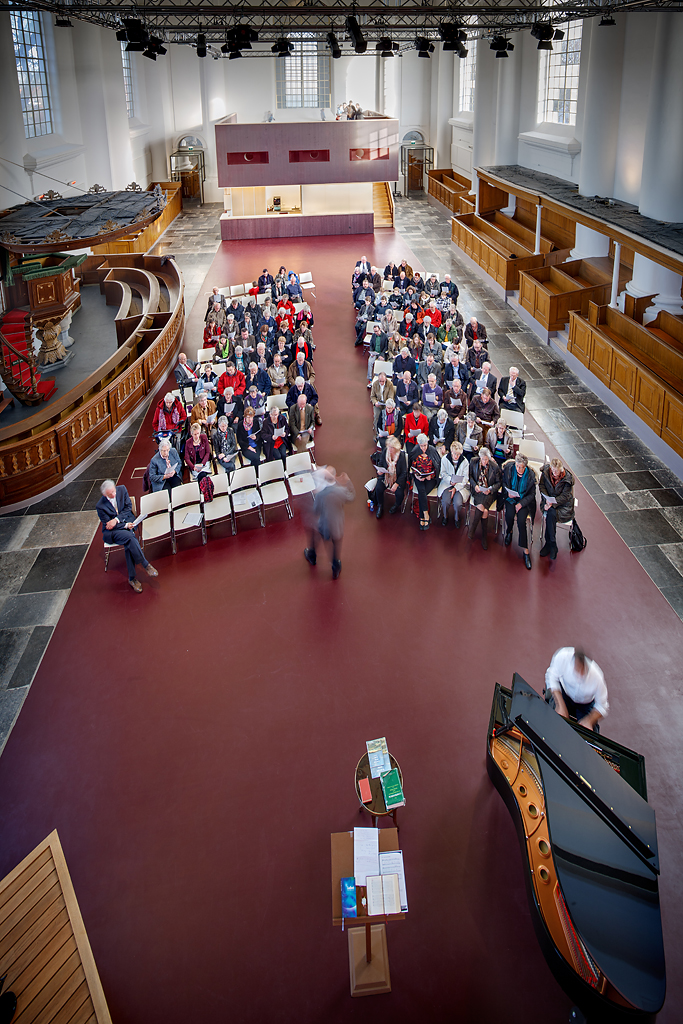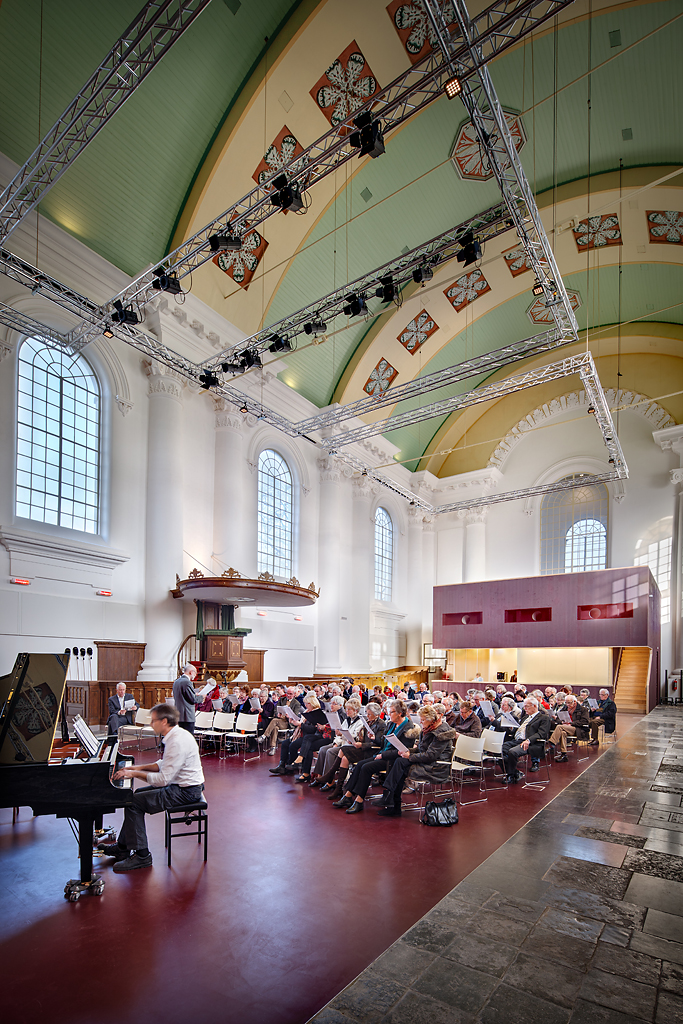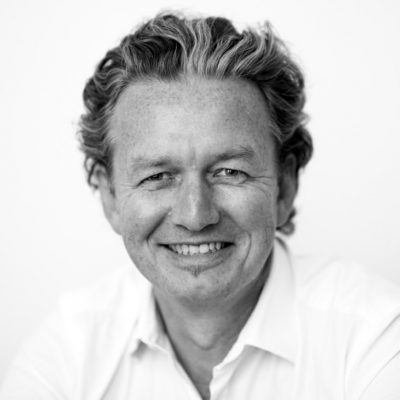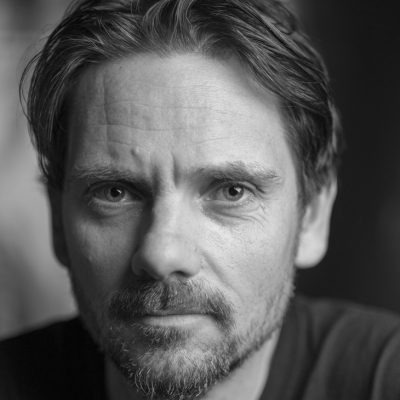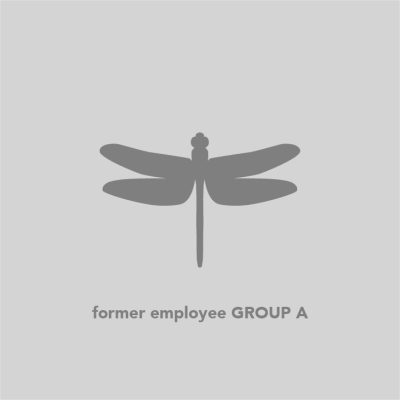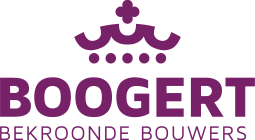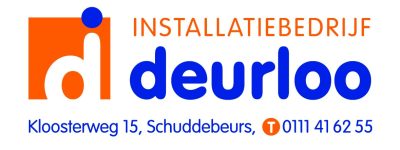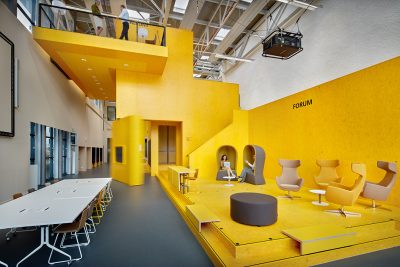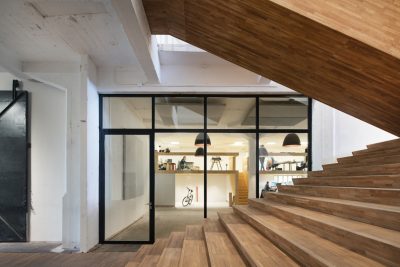Listed building ‘De Nieuwe Kerk’ has been upgraded to a multifunctional event space. With some clever interventions, the Nieuwe Kerk contributes to strengthening Zierikzee’s position as cultural access of Schouwen-Duiveland. In the design, a ‘red carpet principle’ connects the interior of the church with the church square. Inside, this manifests itself as a new poured plastic floor in the center of the church. While outside this has been realised by projecting images onto the square.
In order to make the church a place that is flexible in use, the existing historical church benches, for the orphans and the poor, have been shortened, creating a much more spacious entrance. Two sets of transparent draught lobbies ensure that the monumental exterior doors can be opened invitingly.
Inside a purple red box – the Gallery – positioned central, has been added, housing the ticket sale, toilets, bar, kitchen and storage space. A semi concealed staircase leads visitors up to the balcony from which you have an exclusive view onto the event floor and out through the high church windows.
The poured epoxy resin floor, also in purple red, makes room for the monumental gravestones at the sides and is equipped with a low temperature floor heating system. For this purpose, preheated air (from under the dark slate roof) is led through a heat exchanger to benefit from the heat already present in the attic. The ‘red carpet’ and the Gallery, both in the same colour, form a strong new gesture without overpowering the existing monumental interior of the church.
A motorised truss system, flexible stage decks and interchangeable wings make the church suitable for a variety of performances and events. Because the organ, the marquise benches and the pulpit has remain, the church also functions in its original function. In this way, the church is re-identified as a new cultural place for Zierikzee and beyond.
Facts
Client
Stichting Oude Zeeuwse Kerken
Assignment
Redevelopment/interior
Location
Kerkplein, Zierikzee, NL
Area
1,060 sqm
Function
Cultural
Start design
March 2011
Start construction
August 2013
Completed
February 2014
Photography
Digidaan
